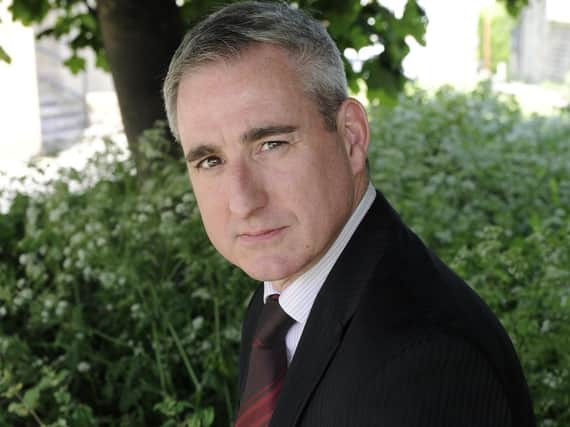Loan charge scandal shows 'no sign of ending' while promoters still advertise schemes, campaigners say


The loan charge is an anti-avoidance measure introduced in the 2016 Budget to address tax loss from what the Treasury called a variety of “disguised remuneration” schemes.
Under such schemes, individuals – often freelancers or self-employed contractors – were paid via a third party in the form of loans, replacing part or all of their salary.
Advertisement
Hide AdAdvertisement
Hide AdDue to loans not incurring income tax, the Government decided that those entering into such schemes, which dated back to 1999, had been skirting their tax payments and demanded income tax be paid on the full amounts received over that duration of time.
And last December, the Government accepted a number of recommendations in a report by senior auditor Sir Amyas Morse and agreed to reduce the tax bill of 30,000 people caught up in the loan charge – which has been linked to suicides.
But Greg Mulholland, the former Liberal Democrat MP for Leeds North West who now campaigns on the issue, said the real perpetrators were those who sold the schemes, often to unsuspecting individuals who were assured they were legitimate.
And he said they were yet to “pay a penny of the disputed tax”.
Advertisement
Hide AdAdvertisement
Hide AdSpeaking to The Yorkshire Post’s political podcast, Pod’s Own Country, Mr Mulholland said: “There are some extremely rich and very well connected people who are known to have been involved, to have owned companies who have openly and indeed, even now are openly promoting and operating schemes of a similar nature that further down the line will get people into trouble.
“And they are still saying that they are compliant, they're still saying that they are fine, and if you look at the glossy brochures that they produce, any ordinary person - particularly when this is backed up by a professional advisor will think that this is legitimate.”
Seven suicides have been linked to the loan charge and Wolf Dette, who worked as a contractor, said when he received a demand for £50,000 within 30 days in the middle of a pandemic he “shut down completely mentally and emotionally”.
He said: “For me, it was so intense that I was diagnosed with PTSD afterwards by a doctor and my hormone production shut down, and I'm going to be on hormone replacement therapy for the rest of my life due to this because the stress of it.
Advertisement
Hide AdAdvertisement
Hide Ad“It was just such an insane thing that I've gone through. I've never experienced anything like this, and I've experienced a lot of hardship in my life.”
Mr Mulholland said: “I'm afraid I think it also aligns with other things that people are seeing and rightly getting angry with in this country, there's a sense that there really is one rule for some, and one rule for others at the same time where everybody knows - ministers know, HMRC knows - that there are huge corporation run by billionaires who are not paying the right amount of tax.”
He added: “We all accept that people should pay tax, including huge corporations, as well as businesses and individuals.
“But the way that HMRC and indeed, Government policy has so ruthlessly and callously targeted people who were clearly missold, were clearly misled, and had no qualms about ruining their lives and indeed, pushing people to the point of taking their own lives, whilst doing nothing about well connected, very rich people who were involved, I'm afraid that is quite disgusting.”
Advertisement
Hide AdAdvertisement
Hide AdA Government spokesperson said: “The loan charge is designed to combat the use of loans by a very small percentage of people, generally via offshore trusts, to avoid paying tax and national insurance contributions on their income.
“Other things being equal, this tax avoidance would mean that the vast majority of regular taxpayers would have to pay more in order to support our public services. That is manifestly unfair, and that is why the government continues to take action against it.”
They said: “We are aware that tax burdens can add significant pressures on people and HMRC’s customer-facing staff are trained to ensure that the department identifies and treats customers who need extra support correctly.
“Where HMRC identifies customers who need extra support, it transfers customers to its Extra Support advisers who have the skills, knowledge and empathy to handle queries at the customer’s pace and provide reasonable adjustments, as required. Where a customer is unable to pay their liability in full HMRC will work with them to agree a payment plan based on their personal financial circumstances which is affordable and sustainable.
“HMRC remains committed to ensuring that everyone pays the tax they owe, including tackling the marketing and use of disguised remuneration tax avoidance schemes.”